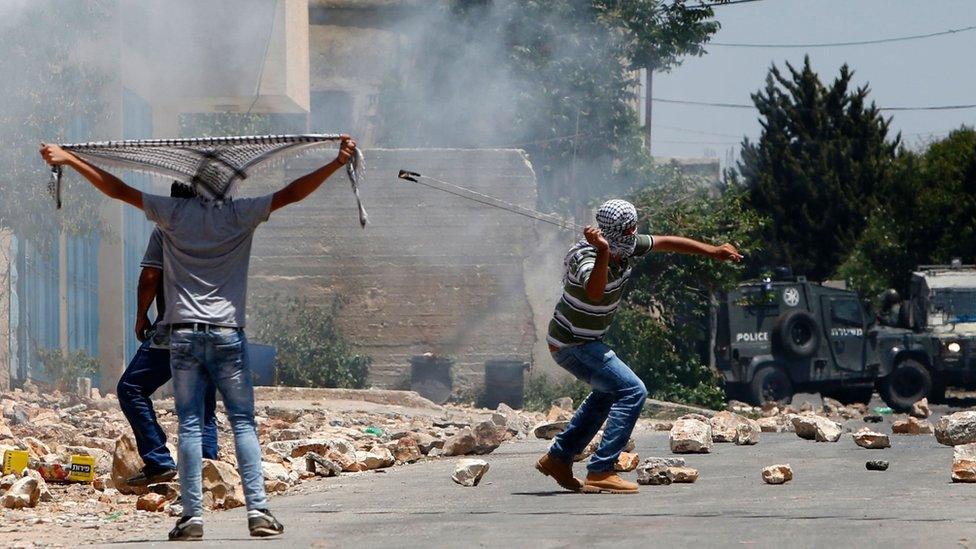Israel postpones vote on new Jerusalem settlement homes
- Published
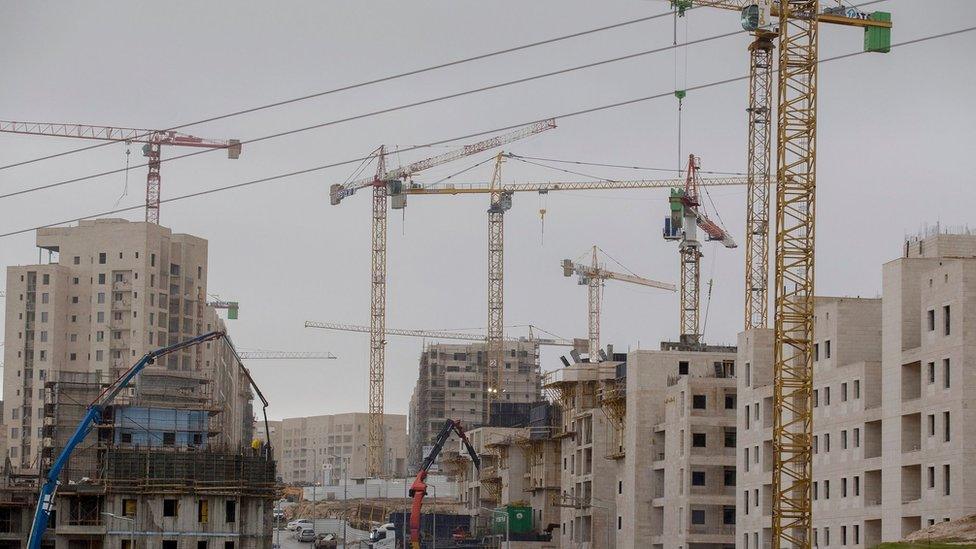
The settlements are considered illegal under international law, though Israel disputes this
An Israeli committee has postponed a vote to authorise construction of almost 500 new homes in Jewish settlements in occupied East Jerusalem.
The move apparently follows a request from Prime Minister Benjamin Netanyahu's office.
It also comes ahead of a speech on the Israeli-Palestinian conflict by US Secretary of State John Kerry.
On Friday, the US chose not to veto a UN Security Council resolution calling for an end to settlement construction.
The decision to abstain infuriated Mr Netanyahu, whose spokesman said on Tuesday he had "ironclad information" from Arab sources that the White House had helped draft the language of the resolution and "pushed hard" for its passage.
A US state department spokesman said, external the accusation was "just not true", but he hoped the resolution would "serve as a wake-up call" for Israel.
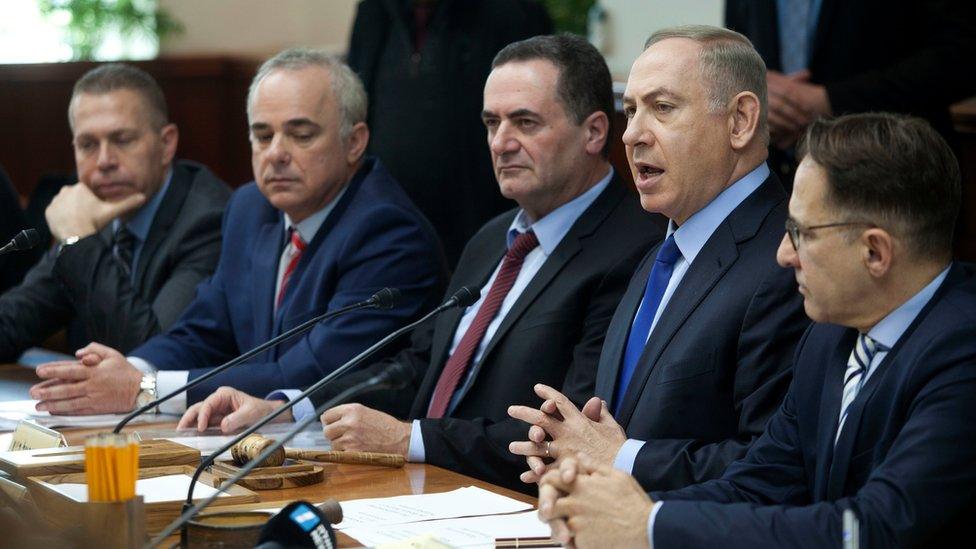
Benjamin Netanyahu declared that Israel would "not turn the other cheek" to the UN vote
More than 500,000 Jews live in about 140 settlements built since Israel's 1967 occupation of the West Bank and East Jerusalem. The settlements are considered illegal under international law, though Israel disputes this.
The Security Council resolution passed on Friday stated, external that the establishment of settlements "has no legal validity and constitutes a flagrant violation under international law and a major obstacle to the achievement of the two-state solution and a just, lasting and comprehensive peace".
Israel rejected the resolution, and the BBC's Yolande Knell said it was particularly angry about the condemnation of building in East Jerusalem - which it sees as part of its capital, but which the Palestinians want as the capital of their future state.
Mr Netanyahu responded over the weekend by summoning the ambassadors of the US and the 14 countries on the Security Council who voted in favour of the resolution, recalling Israel's ambassadors to New Zealand and Senegal, cutting aid to Senegal, and cancelling a visit by Ukraine's prime minister.
Barbara Plett-Usher explains what the UN Security Council's vote means
The Jerusalem Planning and Housing Committee had indicated it would press ahead with a planned vote on authorising 492 new homes in the settlements of Ramat Shlomo and Ramot.
But on Wednesday, planning committee member Hanan Rubin said the vote had been postponed.
Mr Rubin told the BBC this was at the request of the prime minister's office, to avoid further straining relations with Washington hours before Mr Kerry's speech.
"It's in our interest to avoid political voting in Jerusalem because Jerusalem is not the same as settlements around Israel," he said.
"We are creating affordable housing and housing for young families... and if there is a big storm and Kerry's speech today, we are looking to avoid this conflict."
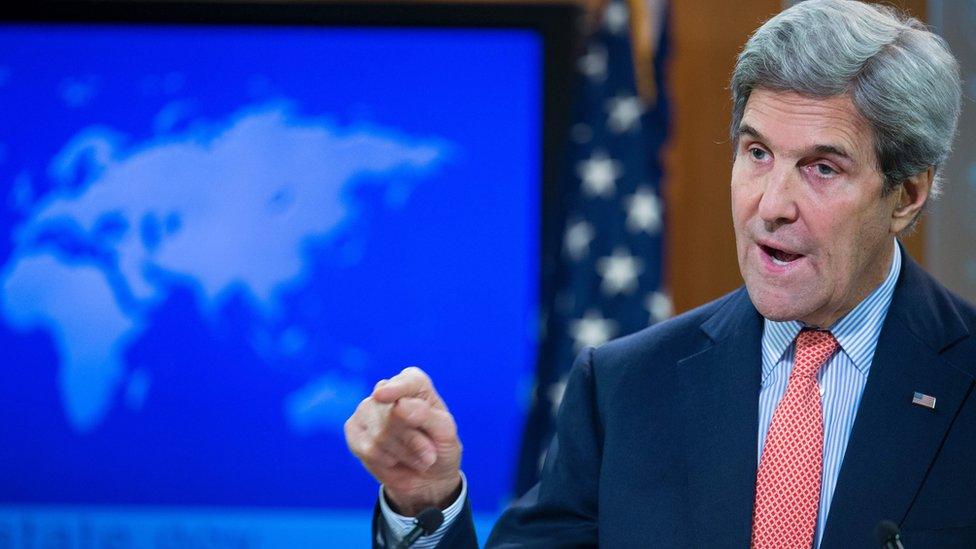
US officials said John Kerry would address "misleading critiques" of the Obama administration
Mr Kerry is expected, external to lay out his vision later on Wednesday for ending the Israel-Palestinian conflict, and address what a senior state department official described as "misleading critiques, external" of the Obama administration by the Israeli government.
Palestinian Authority President Mahmoud Abbas has said the resolution "paves the way" for the upcoming conference on Middle East peace in France on 15 January.
"We hope this conference comes up with a mechanism and timetable to end the occupation," he told a meeting of his Fatah party on Monday.
- Published16 December 2016
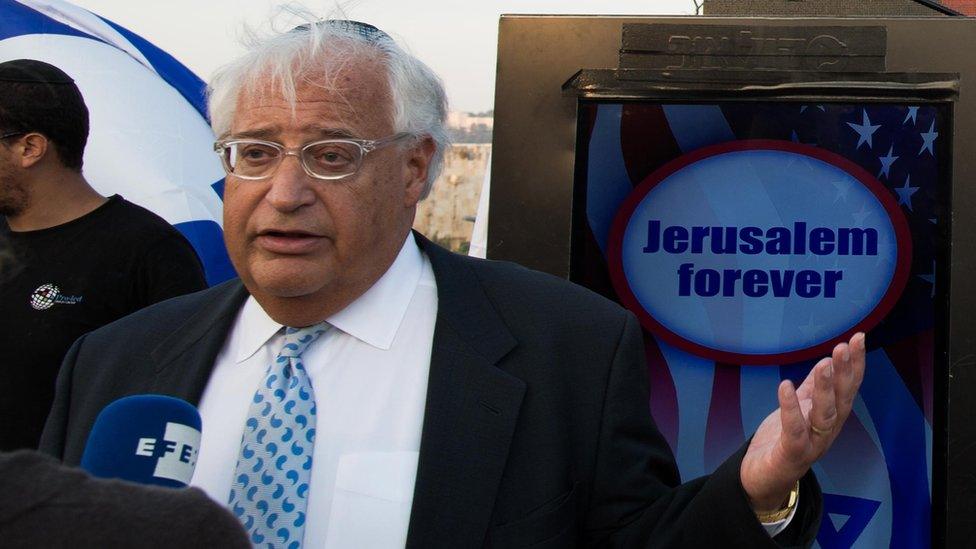
- Published6 October 2016
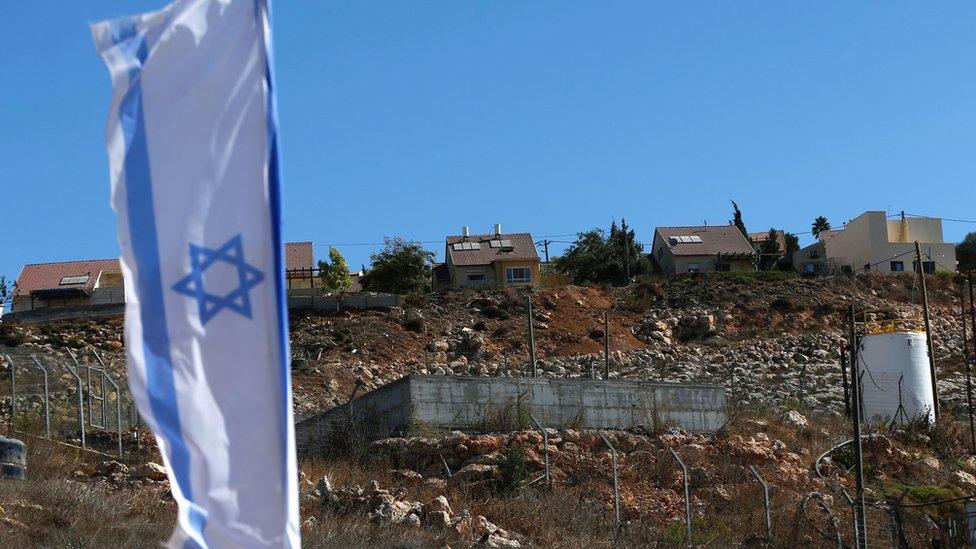
- Published1 July 2016
